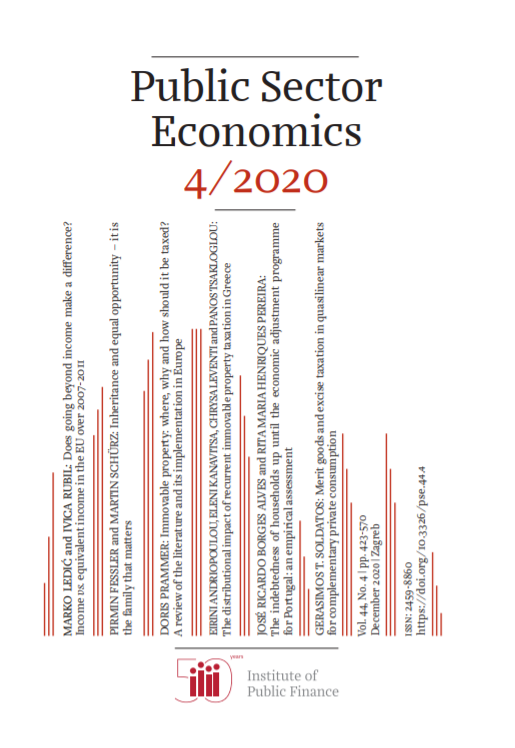The distributional impact of recurrent immovable property taxation in Greece
Keywords:
Property taxation, Inequality, Poverty, progressivity, GreeceAbstract
During the last decade, Greece faced one of the most severe debt crises among developed countries, leading to Economic Adjustment Programs in order to avoid a disorderly default. Public expenditure was cut, tax rates were increased and new taxes were introduced, aiming at restoring public finances. Prominent among the latter were recurrent property taxes that had played a very minor role before the crisis. These taxes helped to boost public revenues but were hugely unpopular. The paper examines in detail their distributional impact and finds that they led to increases in inequality and (relative) poverty. The result is stronger in the case of inequality indices that are relatively more sensitive to changes close to the bottom of the distribution and poverty indices that are sensitive to the distribution of income among the poor.
Additional Files
Published
How to Cite
Issue
Section
License
Copyright (c) 2020 Eirini Andriopoulou, Eleni Kanavitsa, Chrysa Leventi, Panos Tsakloglou

This work is licensed under a Creative Commons Attribution-NonCommercial 4.0 International License.









